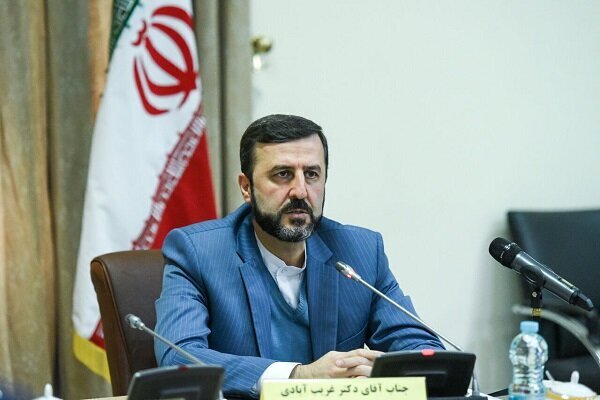JCPOA talks depend on changes in other parties behavior says Iran deputy FM
JCPOA talks depend on changes in other parties' behavior, says Iran deputy FM
TEHRAN – Iran’s Deputy Foreign Minister for Legal and International Affairs, Kazem Gharibabadi, has reaffirmed the country’s willingness to resume negotiations aimed at lifting sanctions, provided other parties demonstrate readiness for constructive dialogue.

Speaking to reporters on Tuesday morning, Gharibabadi emphasized Iran’s consistent openness to negotiations. “We have always been prepared for this, and if the other parties are ready as well, we believe talks can proceed and lead to a conclusion,” he stated.
He further noted that Iran’s approach would remain flexible and responsive to the policies of the other negotiating parties. “If we observe a different policy or approach from the other side, Iran will adjust its own policies accordingly,” he added.
Gharibabadi expressed optimism about the potential for meaningful dialogue, highlighting the peaceful nature of Iran’s nuclear program and criticizing the ineffectiveness of unilateral sanctions. “There are proper opportunities for dialogue and understanding,” he remarked. “The most logical path forward is to initiate talks on lifting sanctions, which is the reasonable and correct approach.”
Gharibabadi also responded to remarks made earlier by former U.S. President Donald Trump, who claimed that Iranian oil sales were being halted due to its support for Resistance groups fighting Israeli occupation.
In his statement to reporters, Gharibabadi reaffirmed Iran's willingness to engage in diplomacy. “The Islamic Republic of Iran, as always, is ready to initiate and resume negotiations aimed at lifting sanctions,” he said. “We have consistently been prepared, and if the other parties demonstrate the same readiness, we are confident that talks can proceed and yield positive results.”
He added that Iran’s stance remains flexible and responsive to the behavior of other parties involved. “If we observe a different policy or approach from the other side, Iran will adjust its own approach accordingly,” Gharibabadi concluded.
He also revealed that consultations are ongoing to determine the date and time for future discussions, underlining Iran’s commitment to advancing the negotiations.
The Joint Comprehensive Plan of Action (JCPOA), the landmark nuclear deal signed in 2015 between Iran and the P5+1 group of nations—comprising the United States, the United Kingdom, France, Russia, China, and Germany—has faced significant challenges since its inception. U.S. President Donald Trump unilaterally withdrew from the agreement in 2018, reinstating sanctions against Iran.
Negotiations to revive the JCPOA resumed in Vienna in April 2021, aiming to assess Washington’s commitment to rejoining the agreement and lifting the sanctions imposed by the previous administration.
Iran has been stepping up the measures in response to the other parties’ continued refusal to uphold their obligations under the nuclear deal.
Gharibabadi also emphasized the need for constructive dialogue with European countries to address the economic hardships that have affected the daily lives of ordinary citizens, stressing that such talks could pave the way for resolving the challenges.
Direct talks with U.S. subject to Leader, National Security Council approval: Iranian MP
In an interview with SNNTV, a member of Iran's National Security and Foreign Policy Committee, Mohammad Qashqavi, outlined the conditions under which direct negotiations between Iran and the United States could take place.
Speaking on the matter, Qashqavi emphasized the historical and political sensitivity of direct talks between the two nations, stating that such negotiations have been a contentious issue since the 1979 Islamic Revolution. “Direct negotiations between Iran and the U.S. have always been a significant matter, and the mechanism for decision-making in this area is entirely clear,” he explained.
The MP underscored that decisions regarding Iran-U.S. relations are governed by the country’s established legal frameworks.
“At the top of this decision-making structure are the Leader of the Islamic Revolution, the President, and the Supreme National Security Council,” Qashqavi said. He stressed that if the possibility of direct negotiations is raised, it must be carefully reviewed and approved within these institutional boundaries.
Iran’s Foreign Minister Abbas Araghchi previously said Tehran will only consider direct talks with the U.S. after the country has returned to the JCPOA.
source: tehrantimes.com